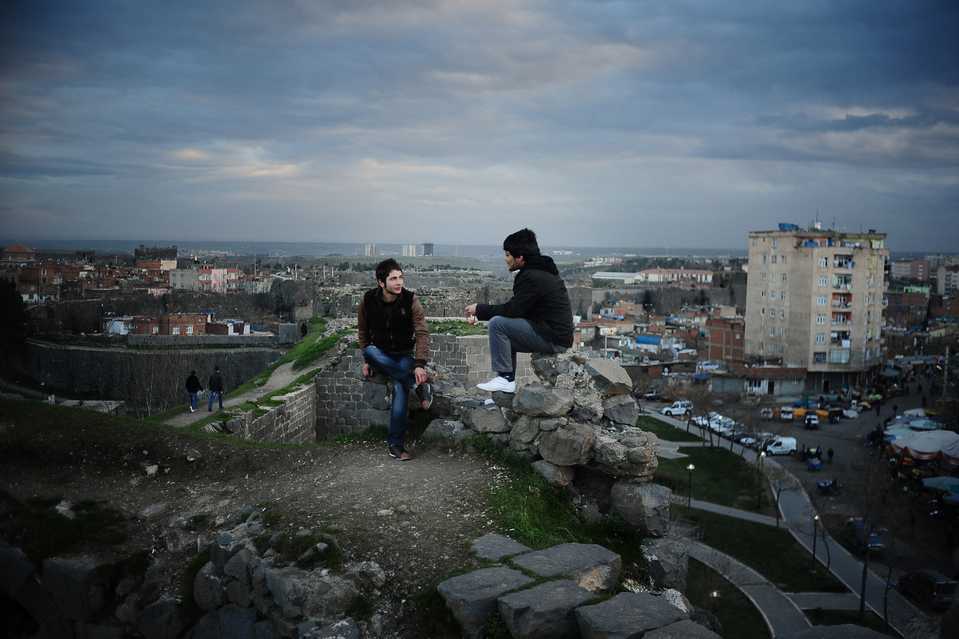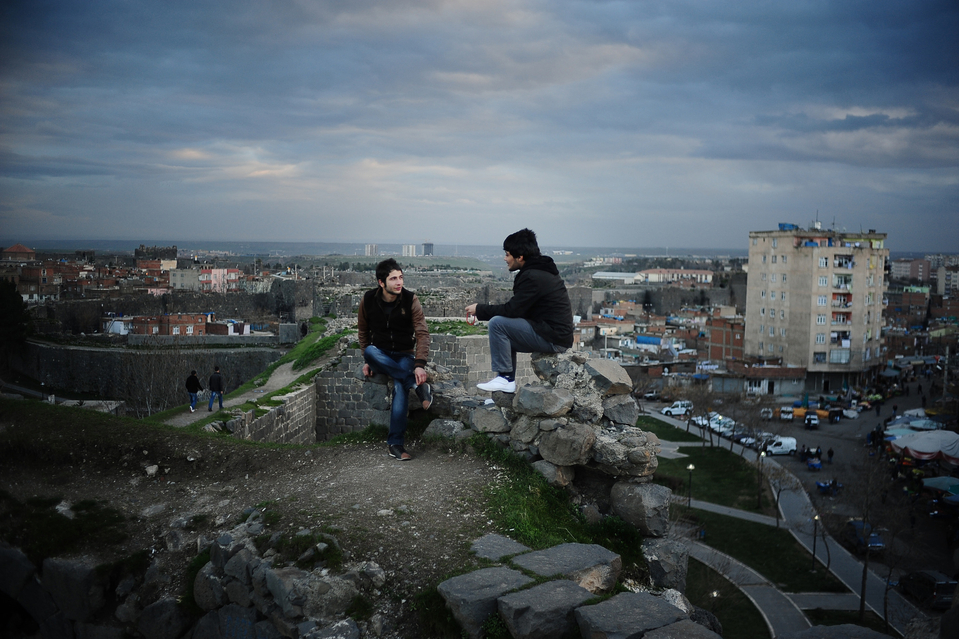By WSJ Staff
Turkey’s central government and Kurdistan Workers’ Party rebels are negotiating a peace deal that could halt a bloody guerrilla war, upend Turkish politics and reverberate across the Middle East. Joe Parkinson and Ayla Albayrak report on WSJ.com.
All photographs by Ayman Oghanna for The Wall Street Journal.

Boys sat Monday atop the medieval city walls of Turkey’s main Kurdish city, Diyarbakir. The leader of the militant Kurdistan Workers’ Party, or PKK, Abdullah Ocalan, is in solitary confinement in an island prison but is negotiating a peace deal that could halt a bloody guerrilla war.

The Diyarbakir prison, shown here, housed thousands of Kurdish political inmates over the past three decades. Another prison compound, where the PPK leader spent the last 14 years, a four-hour ferry ride from Istanbul, is an unlikely setting for negotiations that could shape Turkey’s future.

The Peace and Democracy Party’s Altan Tan was part of a delegation of Kurdish lawmakers who visited Mr. Ocalan in February. ‘Despite solitary confinement, he is on top of everything,’ Mr. Tan said.

A woman on a street in Diyarbakir. Last week, Mr. Ocalan sent a handwritten letter to senior PKK leaders in Northern Iraq proposing a cease fire.

In return for a cease-fire deal, under Mr. Ocalan’s plan, Ankara would set up a parliamentary commission to enshrine the rights of Kurds in Turkish laws.

Kurds want greater autonomy in the predominantly Kurdish southeast. Here, men at a plaza in Diyarbakir.

Kurds also want education in their mother tongue, which is now banned. Here, an unofficial school in Diyarbakir where teenagers are taught in Kurdish.

Turkish police watch over a street corner in Diyarbakir. The Kurds represent about a fifth of Turkey’s population, and the guerrilla war begun by Mr. Ocalan has claimed 40,000 lives since 1984.

A Kurdish choir rehearsed recently for the coming Kurdish New Year celebration, Newroz, in a cultural center in Diyarbakir.

Graffiti on a wall in Diyarbakir reads ‘Freedom for our leadership now.’ Mr. Ocalan, leader of the PKK, has been imprisoned since his capture by Turkish Special Forces in 1999.

A peace deal also could usher a new political settlement in Turkey and help realize the ambition of Prime Minister Recep Tayyip Erdogan to rule for another decade, according to analysts.
All photographs by Ayman Oghanna for The Wall Street Journal.

